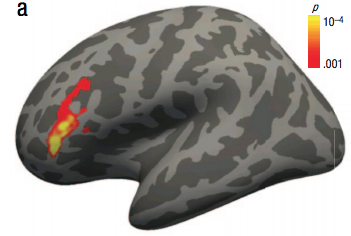
A new neuroscience study finds that back-and-forth conversation is related to brain activity and verbal aptitude

More than 20 years ago, psychologists Betty Hart and Todd Risley discovered what they called the “30 million word gap.” Through family visits, they estimated that children under 4 from lower-income families heard a staggering 30 million fewer words than children from higher-income families. That study was embraced by Hillary Clinton and it spurred a White House conference on the topic, public service announcement campaigns, and the creation of at least two outreach organizations. The clear message: talk to your babies a lot.
But now a team of scientists from Harvard, the Massachusetts Institute of Technology and the University of Pennsylvania is questioning whether the quantity of words matters much at all. A study they published last month in the journal Psychological Science found that young 4-, 5- and 6-year-olds who engaged in more conversation at home had more brain activity while they were listening to a story and processing language.
 Children’s early language exposure impacts their later linguistic skills, cognitive abilities, and academic achievement, and large disparities in language exposure are associated with family socioeconomic status (SES). However, there is little evidence about the neural mechanisms underlying the relation between language experience and linguistic and cognitive development. Here, language experience was measured from home audio recordings of 36 SES-diverse 4- to 6-year-old children. During a story-listening functional MRI task, children who had experienced more conversational turns with adults—independently of SES, IQ, and adult-child utterances alone—exhibited greater left inferior frontal (Broca’s area) activation, which significantly explained the relation between children’s language exposure and verbal skill. This is the first evidence directly relating children’s language environments with neural language processing, specifying both an environmental and a neural mechanism underlying SES disparities in children’s language skills. Furthermore, results suggest that conversational experience impacts neural language processing over and above SES or the sheer quantity of words heard.
Children’s early language exposure impacts their later linguistic skills, cognitive abilities, and academic achievement, and large disparities in language exposure are associated with family socioeconomic status (SES). However, there is little evidence about the neural mechanisms underlying the relation between language experience and linguistic and cognitive development. Here, language experience was measured from home audio recordings of 36 SES-diverse 4- to 6-year-old children. During a story-listening functional MRI task, children who had experienced more conversational turns with adults—independently of SES, IQ, and adult-child utterances alone—exhibited greater left inferior frontal (Broca’s area) activation, which significantly explained the relation between children’s language exposure and verbal skill. This is the first evidence directly relating children’s language environments with neural language processing, specifying both an environmental and a neural mechanism underlying SES disparities in children’s language skills. Furthermore, results suggest that conversational experience impacts neural language processing over and above SES or the sheer quantity of words heard.